Understanding Women’s Experience With Addiction
While addiction can affect anyone regardless of age, background, or gender, the path into and out of substance use disorder often differs significantly for women. The circumstances that lead women to addiction, the ways they experience it, and the barriers they face in seeking treatment are shaped by a complex mix of social, emotional, and biological factors. These challenges can impact when and how women begin recovery — and whether they succeed in staying sober.
In North Florida cities like Lake City, Gainesville, Tallahassee, and surrounding areas, more women are finding the courage to seek help. Yet many still struggle silently, navigating addiction amid societal pressures, personal responsibilities, and mental health needs. Effective addiction treatment for women must go beyond the physical aspects of substance use. It must also address the layers of trauma, identity, and lived experience that influence a woman’s ability to heal.
The Influence of Trauma on Women’s Addiction
Trauma is a significant factor in many women’s addiction stories. Physical abuse, sexual assault, domestic violence, or childhood neglect are unfortunately common experiences that can lead to deep emotional wounds. When left unprocessed, trauma can contribute to anxiety, depression, or post-traumatic stress — conditions that often drive substance use as a form of self-medication.
Women may turn to alcohol, opioids, or stimulants in an effort to numb overwhelming memories or to escape the mental and emotional pain they carry. These substances may offer temporary relief, but they quickly create dependency. Over time, the cycle of trauma and addiction becomes harder to break without professional help.
Treatment for women must include trauma-informed care — a compassionate approach that recognizes the impact of past experiences. Programs that offer therapy designed to address trauma, alongside medical detox and counseling, can provide a safe foundation for women to process and recover.
Stigma and Shame in Women’s Recovery Journeys
While addiction carries stigma for anyone, women often face harsher judgment when struggling with substance use. Society tends to view women — especially mothers — through a lens of moral expectation. When a woman develops a substance use disorder, she is more likely to be seen as neglectful, irresponsible, or unfit.
This added layer of scrutiny can cause women to hide their addiction. They may avoid reaching out for help due to fear of losing their children, damaging their reputation, or being shamed by their community. The guilt and shame associated with these fears can reinforce the addiction, making it harder to break the cycle.
Reducing stigma around women’s addiction is vital. Treatment environments that emphasize support over judgment help foster a sense of trust and dignity. When women feel seen and valued, they are more likely to fully participate in recovery.
The Weight of Caregiving and Family Roles
Many women are the primary caregivers in their families. Whether they are raising children, caring for aging parents, or managing households, these responsibilities don’t disappear when addiction becomes an issue. For some women, caregiving is so deeply embedded in their identity that admitting to a personal struggle feels like letting everyone down.
This burden of responsibility often delays treatment. Women may believe they don’t have time to go to rehab or fear that stepping away from their family will create chaos. Some may not even consider treatment an option unless child-friendly services or family support are included.
To support women effectively, addiction treatment programs must account for their caregiving roles. Offering services like parenting classes, family counseling, and flexible scheduling can help women balance recovery with their responsibilities. In some cases, providing child care or including children in the recovery process makes all the difference.
Mental Health and Co-Occurring Disorders
Women with substance use disorders frequently experience co-occurring mental health conditions. Anxiety, depression, and eating disorders are more prevalent among women and often go undiagnosed or untreated. These conditions can deepen addiction and make recovery more complex.
Unfortunately, the symptoms of mental health conditions can be mistaken for the effects of addiction alone. Without proper evaluation and care, women may receive treatment for substance use without addressing the underlying emotional struggles that contribute to it. This increases the risk of relapse and undermines long-term success.
An integrated approach to treatment is essential. Programs that include dual-diagnosis care — treating both addiction and mental health together — are far more effective. Therapy, medication management, and holistic wellness strategies can help women heal both emotionally and physically.
Intimate Partner Influence and Risk
Another factor influencing women’s addiction experience is the role of intimate relationships. For some women, substance use is introduced or sustained through a romantic partner. These relationships may be emotionally abusive, codependent, or centered around drug use, making it more difficult for a woman to break free from addiction.
In some cases, a partner may discourage treatment or actively interfere with a woman’s attempts to recover. The emotional complexity of leaving a relationship while managing addiction and recovery can be overwhelming. These challenges can keep women in cycles of substance use far longer than they would be otherwise.
Treatment programs that recognize the role of relationships in addiction can offer critical support. Helping women set boundaries, heal from codependency, and rebuild self-esteem is a necessary part of the recovery process. Support groups for women, relationship counseling, and safety planning services can also be valuable.
Biological and Hormonal Differences
Biology plays a significant role in how women experience addiction. Women may metabolize substances differently than men, meaning they can become physically dependent more quickly or experience stronger effects with lower doses. Hormonal fluctuations, particularly those related to menstruation, pregnancy, or menopause, can also influence mood and cravings.
Pregnancy presents unique challenges for women in addiction. Many expectant mothers delay seeking help due to fear of legal consequences or judgment. Yet untreated addiction during pregnancy carries serious health risks for both mother and child.
Programs that address women’s biological and reproductive health are critical. Offering specialized care during pregnancy, access to women’s health professionals, and education about the impact of hormones on substance use can help women manage their recovery more effectively.
Lack of Gender-Specific Programs
In many areas, addiction treatment programs are designed with a general population in mind, often centering on male experiences. As a result, women may feel uncomfortable, misunderstood, or unsafe in traditional rehab settings. Mixed-gender programs can discourage open conversation or lead women to minimize their struggles in group therapy.
This gap in care often results in underrepresentation of women in treatment facilities. To truly support women in recovery, programs must offer gender-specific services that address their unique challenges, provide emotional safety, and foster peer connection.
Women-only treatment programs, such as those offered at The Wave of North Florida, allow clients to share openly, build trust, and explore healing in a supportive environment. Even if not located directly in Gainesville, Tallahassee, or Ocala, The Wave’s Lake City location is a strong resource for women across the region seeking a tailored recovery experience.
Navigating Recovery in Small Communities
In smaller North Florida communities, privacy concerns can discourage women from entering treatment. When towns are close-knit, there may be fears about being recognized at a rehab center or having word spread to neighbors, employers, or acquaintances.
For women who are already isolated or stigmatized, this concern can create yet another barrier. Accessing treatment in nearby cities like Lake City can offer more anonymity and distance, allowing women to focus on recovery without added social pressure.
Outpatient and telehealth options also provide privacy and flexibility for women hesitant about in-person care. As technology expands access to support, more women are able to receive help discreetly and effectively.
Creating Space for Women to Thrive
Addiction treatment is not just about stopping drug or alcohol use — it’s about creating a life worth living. For women, this often means rebuilding relationships, healing from trauma, discovering new passions, and learning to advocate for their needs. When treatment offers a holistic, gender-responsive approach, the chances of long-term success increase significantly.
Empowering women in recovery includes building life skills, financial independence, and healthy coping mechanisms. Programs that emphasize empowerment help women reclaim agency in their lives, fostering confidence and stability as they move forward.
Aftercare is also essential. Continued therapy, community support, and relapse prevention planning help maintain progress beyond initial treatment. Encouraging women to build a network of supportive peers, attend group meetings, and stay engaged in personal growth keeps recovery active and intentional.
The Wave of North Florida: A Safe Space for Women’s Recovery
Located in Lake City and serving the greater North Florida region, The Wave of North Florida provides a welcoming, woman-centered environment for recovery. Whether you’re in Gainesville, Tallahassee, or Ocala, this facility offers a nearby solution focused on the unique needs of women in addiction treatment.
With individualized plans that address trauma, mental health, and family dynamics, The Wave creates a space where women can focus on healing without fear of judgment. Their holistic approach recognizes that addiction doesn’t happen in isolation — and neither does recovery. Even if the facility isn’t located in a client’s city, it remains a trusted and accessible option for women ready to begin their journey.
Recovery Is Possible for Every Woman
No matter how long addiction has been part of a woman’s life, it is never too late to seek help. The path to recovery may come with challenges, but with the right support, women can heal deeply and fully. From addressing trauma to managing responsibilities, recovery is a journey of transformation.
The most important step is the first one — reaching out. Treatment is not a sign of failure but of strength. Women who seek help are choosing to reclaim their futures, and with compassionate, gender-informed care, that future can be brighter than ever imagined.



